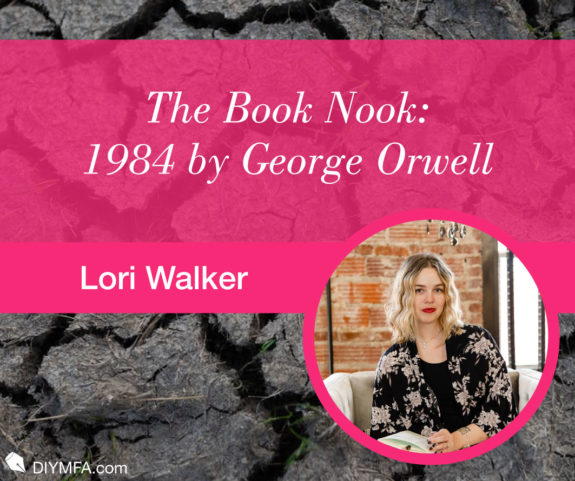This month I surprised myself. I was originally planning on rereading a book for this column, then switched to rereading a different book, then finally settled on buying and reading Orwell’s 1984 in graphic novel format.
I would say I’m a bit surprised that I haven’t read 1984 before now, but I was a bit of an imbecile in high school and resisted reading a number of books that I was told to read. Yet somehow I became an English major? I don’t know. I want to go back and punch myself in the face sometimes. But I digress.
We’re here to talk about George Orwell’s 1984. The novel has certainly come into the fore in recent years, with the rise of alternative facts, the tendency to discredit journalists, and many attempts to rewrite history by censoring the parts of it that are uncomfortable. Rather than focusing on the plot of the book and its connections with the present, which I feel has been thoroughly discussed, I want to talk about art and ideas and what this book has to say about them.
Why a graphic novel?
I was pleasantly surprised to discover that there was a graphic novel version. In my younger, snobbier days, I would have scoffed at the notion. I remember that scene from Major League, where the baseball players are reading the classics…in comic book form. The punchline is supposed to be that they can only comprehend the concepts if there are pictures.
But I now feel like graphic novels have a way of enhancing the story, while also, yes, making it more accessible. This artist, Fido Nesti, uses a simple palette of colors, lots of greys and browns, and occasionally blues and reds. This creates a visual starkness of how drab and uniform the totalitarian government has rendered the nation of Oceania.
One of the things I love about reading is my mind’s ability to paint a picture. But having this visual component to my reading helps rein in that imagination.
And that’s fully part of the point of Big Brother.
The importance of art
I’ve seen a lot of talk amongst writers that I know about why we should even be making art given the current climate. Isn’t there so much more we should be worrying about? Isn’t there something impactful we could be doing?
But those questions, I feel, miss the point of art. I began reading Make Your Art No Matter What by Beth Pickens this morning before sitting down to write this article. In her introduction, she hits on a couple of important points about art and its role in our lives. She says, “Artwork reflects the lived experience, imagination, and ideas of the artist,” then goes on to add, “I find artists furthering and transforming conversations, illuminating new ways to think, feel, connect, and live.”
To me, this means that art and life are inextricably intertwined. Through art, we ask questions, make statements, and engage with the world around us, including those who consume our art. And in order to make art, you also have to take in other artists’ work. Therefore, it’s a full-fledged conversation.
Art is also important because it creates a record of some sort. It depicts current events as interpreted by the individual artist. This makes art inherently subversive because it frequently seeks to challenge the status quo in some way.
How does this relate to 1984?
The novel begins with the defiant act of Winston Smith, the protagonist, putting pen to paper. The very act of putting words on the page forced him to craft a narrative version of current events and past recollections, which may well deviate from the official party line. As you read further, you learn that the party line changes as events unfold and Winston is tasked with correcting written accounts to match these changes in narrative. The government also controls so-called artistic output, dictating the storylines of novels, not just controlling the news and history.
And this is where the importance of art comes in. With art, there is the artist and the medium. There is no entity dictating what the art must look, feel, or sound like. This freedom and ability to express ourselves through our chosen medium is important and priceless.
So, with all of this in mind, please continue making your art. It really is important. Art has the ability to reach other people and impact their lives. But it is also important on the personal level as a way of engaging with the world around you and giving you an outlet to tell your own story. It matters.
Tell us in the comments: Have you read 1984 by George Orwell? What did you think about how it relates to the importance of making art?

Lori Walker is the Operations Maven at DIY MFA. Though she’s fallen off the wagon as a writer, she’s hoping to return to writing essays (perhaps even a novel!) through her involvement with DIY MFA. She is also Launch Manager, Web Editor, and Podcast Producer for DIY MFA and a Book Coach. She resides in Smalltown, Oklahoma, with her husband and their cat, Joan Didion. You can follow her on Instagram at @LoriTheWriter.







